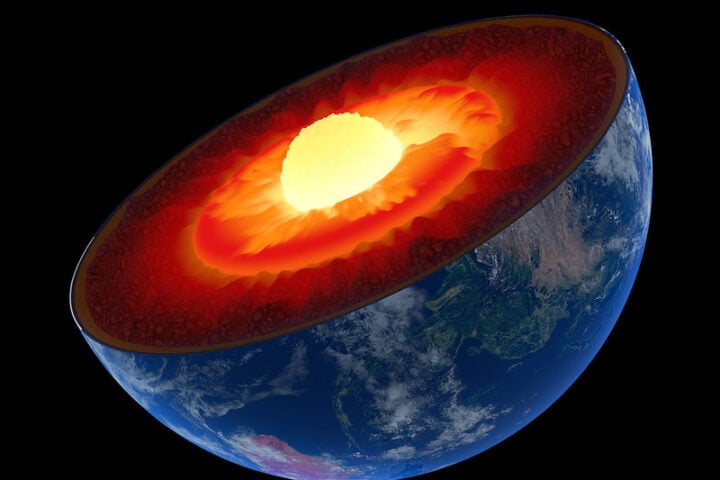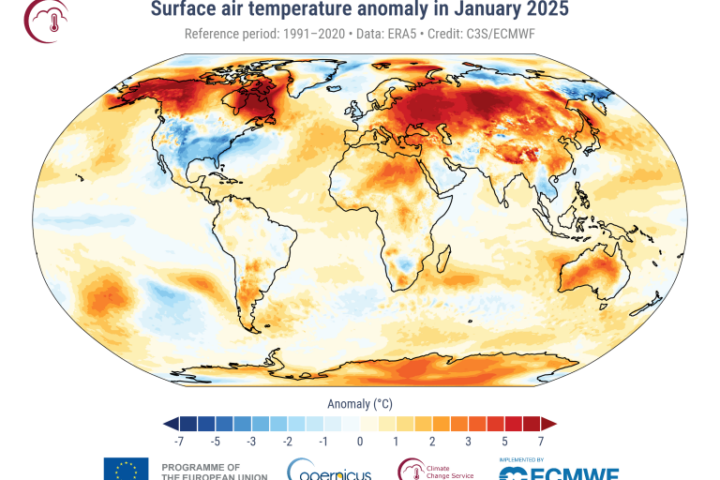This October was the warmest on record, and 2023 is “virtually certain” to be the hottest year ever recorded, climate scientists said on Wednesday. The average global temperature for October was 0.4 degrees C above the previous record for the month, set in 2019, 0.85 degrees C warmer than the 1991 to 2020 average, and 1.7 degrees warmer than an estimate of pre-industrial levels between 1850 & 1900, analysis by the European Union-funded Copernicus Climate Change Service showed. This year is so far 1.43 degrees C warmer than the pre-industrial average.
Drought parched parts of the United States & Mexico during October, while huge swathes of the planet saw wetter than normal conditions often linked to storms & cyclones, said the EU’s Copernicus Climate Change Service (C3S). Sea surface temperatures were the highest ever recorded for the month, a phenomenon driven by global warming that scientists say plays a key role in driving storms to be more ferocious & destructive.
C3S deputy director Samantha Burgess said, “October 2023 has exceptional temperature anomalies, following on from 4 months of global temperature records being obliterated. This year has also seen the beginning of a warming El Niño weather phenomenon, which warms waters in the southern Pacific & stokes hotter weather beyond. Scientists expect the worst effects to be felt at the end of 2023 & into next year.
Beyond these official records, scientists say proxy data for the climate going back further – tree rings or ice cores – suggests the temperatures seen this year could be unprecedented in human history, potentially the warmest in more than 125,000 years. People across the planet have faced heatwaves & droughts this year, while severe flooding has struck the USA, China, India & beyond.
Similar Posts
Backstory
- Record Temperatures: July 2023 was the warmest July ever recorded, with a deviation of over 0.7 °C from the 1991-2020 average.
- Global Impact: Heatwaves affected the Northern Hemisphere, particularly southern Europe, North Africa, and the Canadian Arctic, with temperature anomalies reaching +5 °C to +7 °C in some regions.
- Attribution to Climate Change: Scientists have linked these heatwaves to human-induced climate change and the development of El Niño in 2023.
- Historical Context: The June–July–August season of 2023 was globally the warmest on record, with September 2023 being the warmest September ever.
- Comparison with Past Events: Heatwaves are becoming more frequent and intense, aligning with IPCC predictions. The July heatwave in Southern Europe and North America would be nearly impossible without climate change.
International Response and More
- Jet Stream Alterations: Climate change may be affecting the jet streams, contributing to prolonged weather patterns and heatwaves.
- Ocean Temperatures: Record high sea surface temperatures were recorded from May to August 2023.
- Paris Agreement: The world breached the 1.5 °C warming mark of the Paris Agreement for a record number of days in 2023.
- Political Actions: Leaders, including U.S. President Joe Biden, called for greater action on climate change in response to the heatwaves.
Interesting Stats and Studies
- Heat Impact: During each day in July 2023, two billion people experienced heat conditions made at least three times more likely due to climate change.
- Record-Breaking Heat: July 2023 was the hottest July on Earth in the last 120,000 years.
- IPCC Predictions: The frequency and magnitude of heatwaves are rising due to man-made climate change, as predicted by the IPCC.
- El Niño and Climate Change: Recent findings suggest that climate change is exacerbating the strength of El Niño events.
- Temperature Records: Numerous regions broke heat records, with cities in Tunisia and Algeria experiencing temperatures nearing 50 °C (122 °F).
- Rainfall Anomalies: Unusually heavy rainfall accompanied the heatwaves in some regions, leading to flooding and casualties.


















